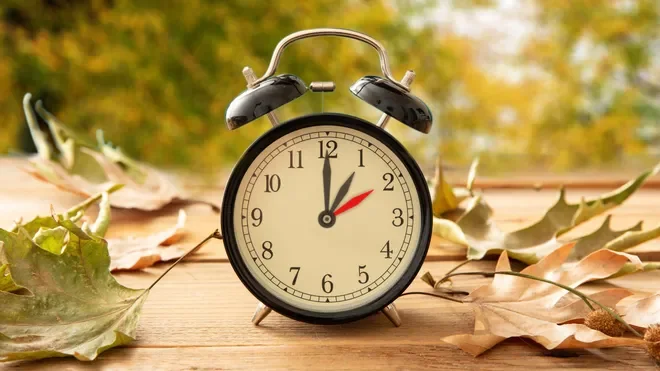Resetting Your Body and Mind After Daylight Savings
by Cali Shimkovitz, MEd, RP(Q)
As the clocks turn back this weekend, most of us welcome the “extra hour” of sleep (at least in theory). But even a one-hour time change can throw off your body’s internal clock more than you might expect. Suddenly, you’re waking up earlier than you want to, feeling sleepy mid-afternoon, or struggling to fall asleep at night. You might notice dips in your mood or energy, or that it takes a few days (or even weeks) to feel “normal” again.
The fall time change affects more than just your schedule. It impacts your circadian rhythm: The 24-hour internal system that regulates sleep, energy, and mood. Luckily, there are ways to help your body and mind adjust smoothly.
Here’s how to support yourself during the transition.
1. Understand What’s Actually Happening
When daylight saving ends we “gain” an hour, but that doesn’t mean our bodies automatically adapt. Your brain’s internal clock still wants to operate on the old schedule. For a few days, you might find yourself waking up too early, feeling wide awake at bedtime, or dragging through the day.
This internal lag is similar to mild jet lag. You’ve technically crossed a one-hour time zone and your brain needs time and consistency to catch up.
2. Use Morning Light to Reset Your Rhythm
The most powerful signal for your body’s clock is light. Exposure to bright, natural light in the morning tells your brain: “It’s time to wake up!”
Try to get at least 15–30 minutes of sunlight within the first hour of waking – even if it means bundling up for a short walk. Open your blinds as soon as you get out of bed, have your coffee by a window, or do your morning scroll in a patch of sunlight.
If natural light isn’t an option (hello, dark Canadian mornings), consider using a light therapy lamp. These mimic daylight and can boost alertness, mood, and focus. This can be especially helpful if you tend to feel low-energy or sluggish in the winter months.
3. Protect Your Evenings from Too Much Light
Just as morning light helps you wake up, bright light at night can confuse your brain into thinking it’s still daytime.
Try dimming lights and reducing screen brightness about an hour before bed. If you can, create a mini “wind-down” routine – something that signals to your body that the day is ending. This could be as simple as reading a few pages of a book, journaling, or doing some light stretching.
If scrolling is part of your bedtime ritual (no judgment!), consider using your phone’s night shift mode or blue light filter to reduce the impact on your sleep.
4. Keep Your Sleep Schedule (Mostly) Consistent
Your body loves predictability. Going to bed and waking up at roughly the same time each day (including weekends!) helps regulate your internal clock, making it easier to fall asleep and wake up naturally.
After the time change, you might feel tempted to stay up later because “it’s not that late yet.” Instead, aim to maintain your pre-time-change bedtime. Your body will adjust faster if you stay consistent.
If you’re feeling especially off, try a gradual adjustment: shift your bedtime by 15–20 minutes over a few nights until you’re back on track.
5. Support Energy Naturally Throughout the Day
The darker evenings and shorter days can make it easy to fall into an energy slump. Some tips to keep you feeling balanced:
Move your body during daylight hours. Exercise (especially outdoors) helps stabilize mood and sleep cycles.
Eat regularly, even if your appetite feels different. Skipping meals can amplify fatigue and irritability.
Limit caffeine after noon — it can delay your sleep drive.
Take short movement breaks during work or school hours to fight the mid-afternoon lull.
Think of these small habits as gentle anchors helping your body reset to the new rhythm.
6. Check in with Your Mood
The time change also marks the start of shorter and darker days, which can impact mood, motivation, and focus. It’s normal to feel more tired, irritable, or low-energy at this time of year.
If you notice that your mood consistently dips, your sleep feels disrupted, or your motivation is hard to find, consider reaching out for support. Talking with a therapist can help you explore how seasonal changes affect you and find strategies to protect your mental health through the winter.
The Bottom Line
Adjusting to the end of daylight savings isn’t just about your clock – it’s about rebalancing your body and mind. Light, sleep, and daily rhythms all work together, and small, consistent habits can make a big difference in how you feel.
So when you turn your clocks back this Sunday, think of it as a reset – not just for your schedule, but for your whole system! Get your light in the morning, protect your wind-down time at night, and give your body a few days to find its rhythm again. You’ll be surprised at how quickly it catches up.

